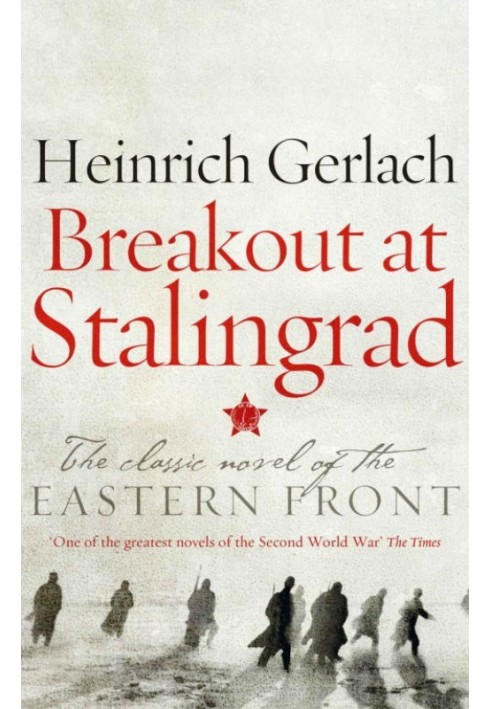Breakout at Stalingrad
 Instant download
Instant download
after payment (24/7)
 Wide range of formats
Wide range of formats
(for all gadgets)
 Full book
Full book
(including for Apple and Android)
Stalingrad, November 1942.Lieutenant Breuer dreams of returning home for Christmas. Since August, the Germans have been fighting the Soviets for control of the city on the Volga. Next spring, when battle resumes, the struggle will surely be decided in Germany’s favour. Between 19 and 23 November, however, a Soviet counterattack encircles the Sixth Army. Some 300,000 German troops will endure a hellish winter on the freezing steppe, decimated by Soviet incursions, disease and starvation. When Field Marshal Paulus surrenders on 2 February 1943, just 91,000 German soldiers remain alive.A remarkable portrayal of the horrors of war, Breakout at Stalingrad also has an extraordinary story behind it. Its author, Heinrich Gerlach, fought at Stalingrad and was imprisoned by the Soviets. In captivity, he wrote a novel based on his experiences, which the Soviets confiscated before releasing him. Gerlach resorted to hypnosis to remember his narrative, and in 1957 it was published as The Forsaken Army. Fifty-five years later Carsten Gansel, an academic, came across the original manuscript of Gerlach’s novel in a Moscow archive. This first translation into English of Breakout at Stalingrad includes the story of Gansel’s sensational discovery.Written when the battle was fresh in its author’s mind, Breakout at Stalingrad offers a raw and unvarnished portrayal of humanity in extremis, allied to a sympathetic depiction of soldierly comradeship. After seventy years, a classic of twentieth-century war literature can at last be enjoyed in its original version.
Data sheet
- Name of the Author
- Heinrich Gerlach
- Language
- English
- Translator
- Peter Lewis











